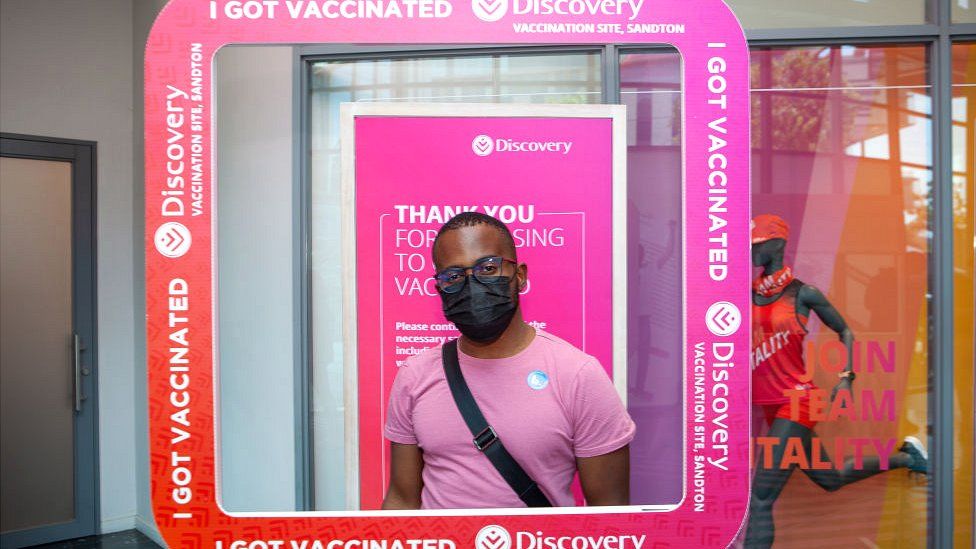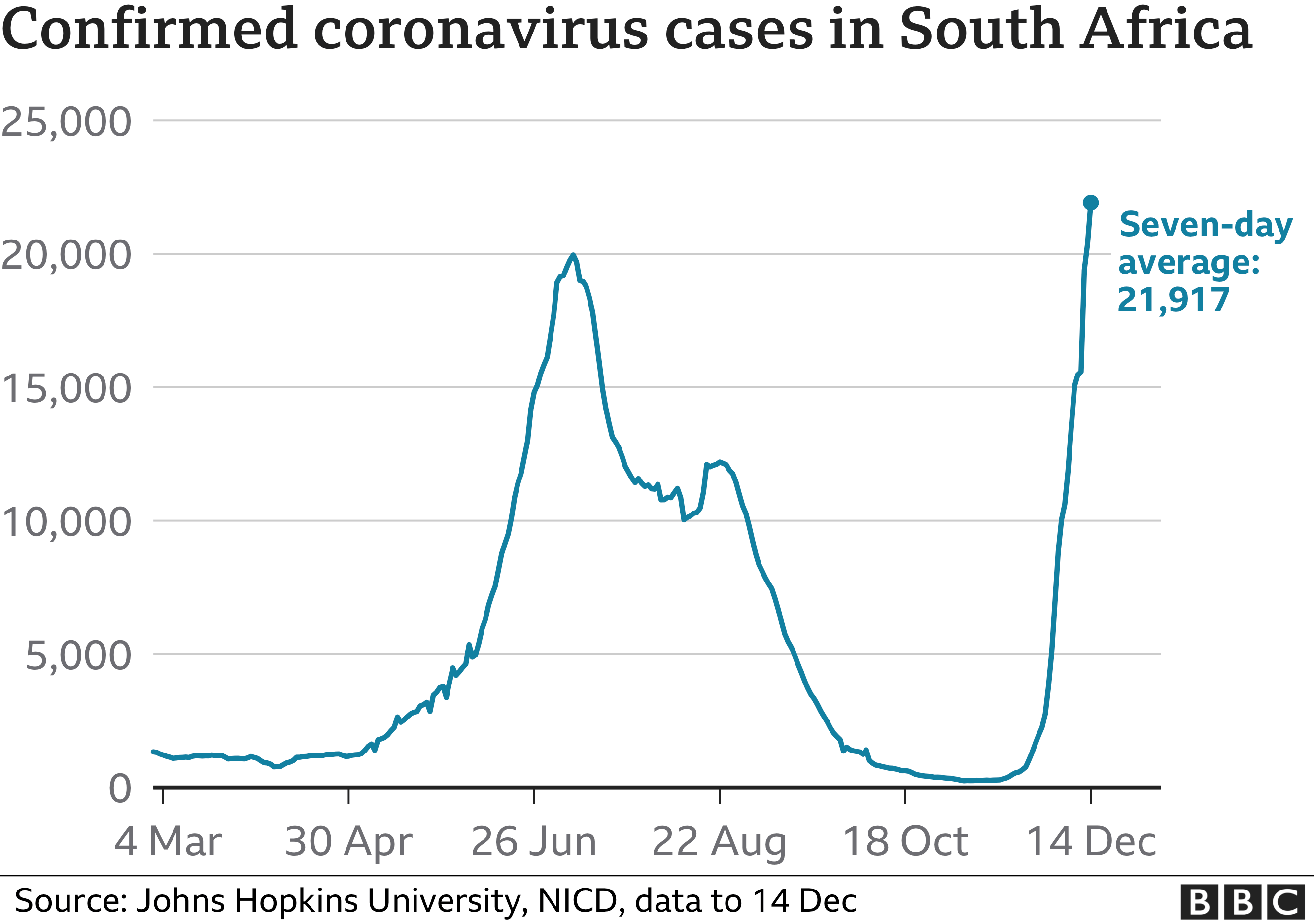Omicron in South Africa
"At this early point, we believe there is hope that the severity is lower. [However], we should not be lulled into any type of complacency.""[The higher risk of breakthrough infections compared to Delta also means masking, distancing and] caution [and] prudence [remain important].""There is no reason to panic in this regard, [infection of children remaining low], without question.""[South Africa is seeing a steep trajectory of new infections] indicating very rapid spread. This is clearly a highly contagious variant of SARS-CoV-2."Dr.Ryan Noach, CEO, Discovery Health
 |
| Getty Images |
Discovery Health, the largest private health insurance administrator in South Africa, has released an analysis based on over 211,000 positive COVID-19 test results; 41 percent derived from adults who had two doses of the Pfizer-BioNTech vaccine. Some 78,000 of those test results were attributed to the newly-discovered Omicron infections occurring between November 14 and December 7, when the variant was first noted to be in circulation.
Researchers studied the Pfizer real-world vaccine effectiveness against Omicron infection hospital admissions and the risk of reinfection for those people known to have been previously infected with SARS-CoV-02 [with circulating antibodies]. Scrutiny concluded that people infected with Omicron seemed less likely to develop severe disease in comparison to adults who had been infected in the first wave of COVID in South Africa.
The risk of hospital admission was 29 percent lower for adults, once adjusted for age, sex, underlying health conditions and vaccine status. The encouraging drop in severity suggests an "apparent de-linking" of infections with hospitalizations, according to a slide presentation given at a press briefing. During the first three weeks of South Africa's Omicron wave, hospital admissions and death from infections rose rapidly, while at this point both have decreased their steep ascent.
All this, while keeping in mind that South Africa has a high rate of background immunity, meaning in the first waves to strike the population infections were widespread. Fully 72 percent of the population in Gauteng -- the outbreak epicentre and province where Omicron was first identified in November -- is felt to have been previously infected, in particular throughout the Delta wave.
What remains unclear at this juncture is how Omicron will evolve in other countries with lower vaccination or lower rates of prior infections. "We have to see what happens in other parts of the world before we can make a call on this" Glenda Gray, president CEO of the South African Medical Research Council, cautioned. Should a surge emerge it would overwhelm health systems through sheer case volume, Dr.Noach added.
He stressed that the single most important intervention is vaccination. The evidence is that those who are vaccinated experience milder infections; primarily it is the unvaccinated that end up in hospital and needing supplemental oxygen. Children under 18 years of age appear to have a 20 percent higher risk of hospitalization, yet child admissions to hospital remain very low.
Most COVID infections in children admitted to hospital are picked up incidentally during routine screening when children present for problems unrelated to COVID, according to anecdotal reports. During the study period, children were 51 percent less likely as opposed to adults, to test positive for COVID. Most children experience mild symptoms: sore throat, congestion, headache and fever, resolving within three days.
In the current Omicron wave, two doses of Pfizer-BioNTech provide 33 percent protection. representing a significant drop from the 80 percent protection in earlier waves, but the vaccine appears to be providing 70 percent protection against severe complications requiring hospital admission. "Whilst protection against hospital admission reduced from the highs of 93 percent in South Africa's Delta-driven variant, 70 percent is still regarded as very good protection", concluded the investigators.
That level of protection held in all age groups, in people aged 18 to79. For those previously infected with COVID, reinfection risk appeared significantly higher compared to earlier variants -- those infected with Delta face a 40 percent relative risk of reinfection with Omicron, according to data suggestion; a possible function of waning antibodies
The infection appears to have a shorter incubation period (three to four days). A scratchy or sore throat the most common early symptom to appear, similar to earlier waves. Nasal congestion, dry cough and muscle aches and pains are other typical features of Omicron onset, with lower back pain a hallmark symptom. But there appears to be less respiratory distress; leading to lower admission numbers to ICUs in comparison to previous waves.

Labels: Infectiousness, Omicron, Severity, South Africa, Studies

0 Comments:
Post a Comment
<< Home